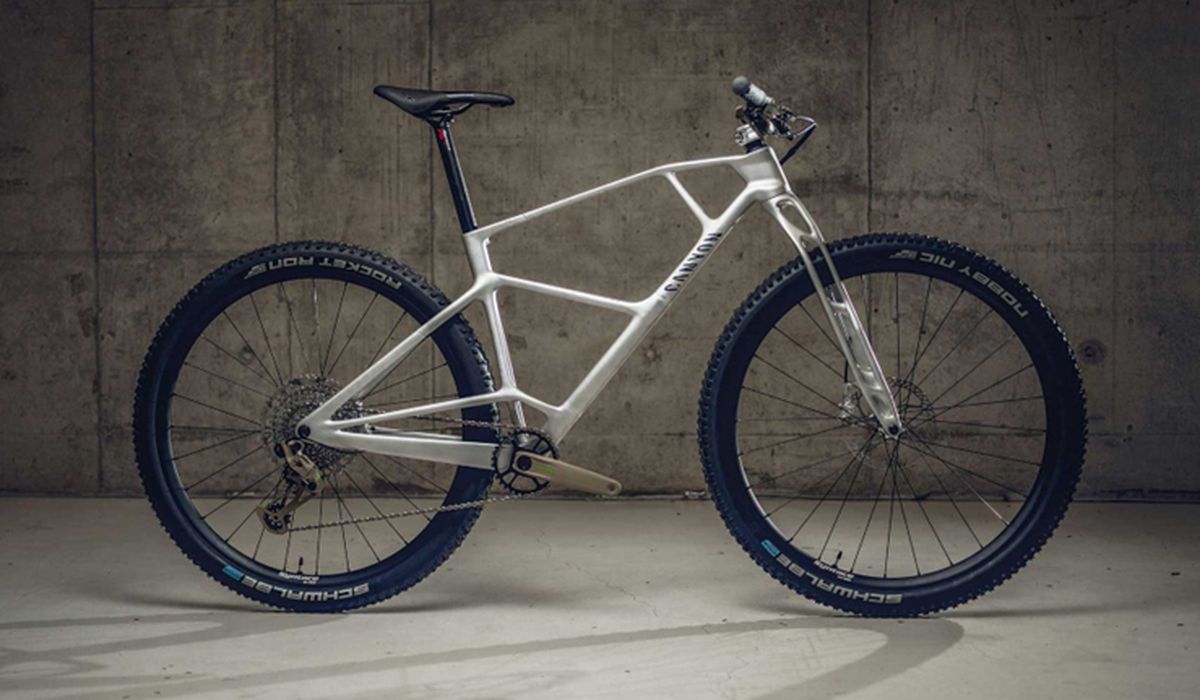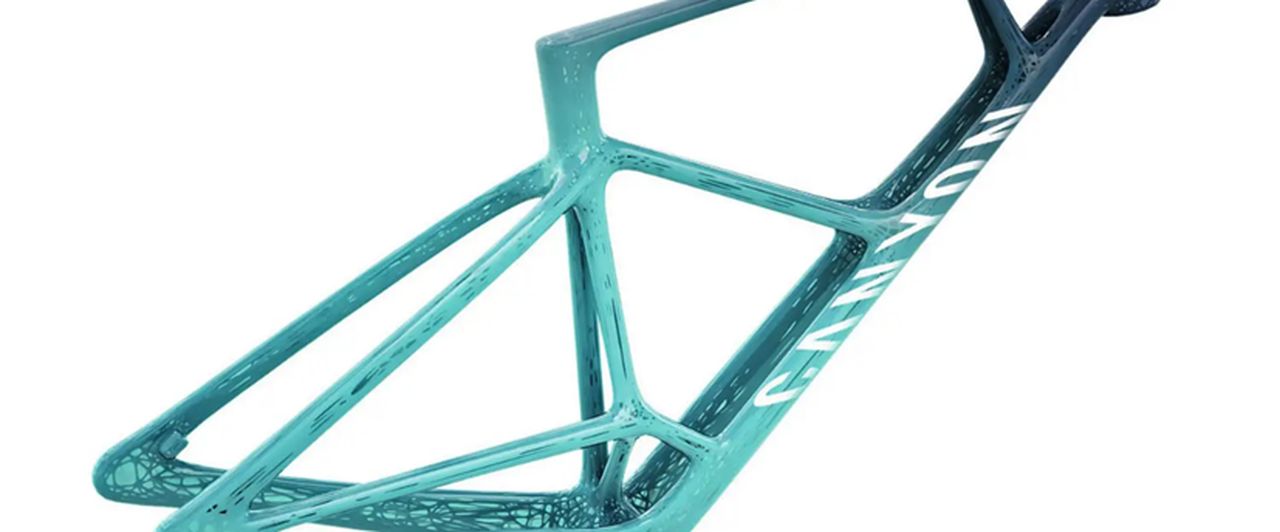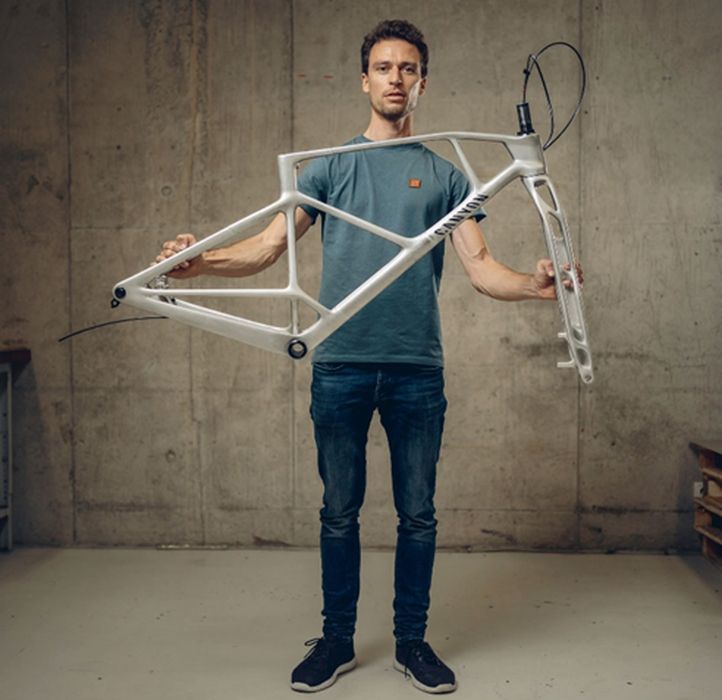
Charles R. Goulding & Preeti Sulibhavi look at a new 3D printed bike frame project.
With the global warming crisis, the rising cost of energy, and supply chain disruptions, using sustainable materials and processes for bicycle fabrication is becoming increasingly popular.
One of the leading bicycle manufacturers, Canyon, is doing just that. Canyon’s latest prototype mountain bike addresses the issue of sustainability with a completely revolutionary, 3D printed aluminum truss frame and fork design in a Project:RideGreen exercise with German BIKE Magazine.
The conceptual project reviews a new bike’s real lifetime environmental costs and carbon footprint, and the ability to realistically recycle individual elements of a bicycle, going far beyond the frame itself.
So while Canyon’s unique alloy rigid MTB frameset is exciting, there are additional eco-friendly details such as German-made brakes you can buy on the market today as well as prototype cranks and derailleurs developed by privately owned bicycle component manufacturer, SRAM that may be in development as well.

There is a lot to take in with this development in bike technology, particularly at a time when its popularity appears to be skyrocketing.
Canyon developer, Johannes Thumm, is quoted as saying: “The metal 3D printed prototype represents the heart of our attempt to build a sustainable bike. The innovative manufacturing process allows for a completely new design language. Materialise was the perfect partner to build this futuristic prototype.”
The body and forks of this prototype were formed using recycled aluminum through 3D printing and reusable powder ‒ meeting the Project:RideGreen sustainability requirements. In addition, by reducing the bike’s carbon footprint and weight, it also delivers better performance.
In recent years, Canyon has experienced large increases in demand while confronting a shortage of key components related to supply chain disruptions. Increased 3D printing applications will enable the company to manage more of these challenges. Canyon’s new CEO, Nicolas de Ros Wallace, is a former executive at Nike, a company with its own deep 3D printing expertise.

Additionally, one frame takes around 18 hours to 3D print. Canyon has decades of experience with metal 3D printing and their Metal Competence Center in Bremen enabled them to optimize printing processes, improve energy efficiency, and consistently recover and reuse metal powder
Companies engaged in 3D printing activities and similar developments may be eligible for the Research and Development Tax Credit.
The Research & Development Tax Credit
The now permanent Research and Development (R&D) Tax Credit is available for companies and startups developing new or improved products, processes and/or software.
3D printing can help boost a company’s R&D Tax Credits. Wages for technical employees creating, testing and revising 3D printed prototypes can be included as a percentage of eligible time spent for the R&D Tax Credit. Similarly, when used as a method of improving a process, time spent integrating 3D printing hardware and software counts as an eligible activity. Lastly, when used for modeling and preproduction, the costs of filaments consumed during the development process may also be recovered.
Whether it is used for creating and testing prototypes or for final production, 3D printing is a great indicator that R&D Credit eligible activities are taking place. Companies implementing this technology at any point should consider taking advantage of R&D Tax Credits.
Conclusion
It is important to see Canyon prioritizing sustainability in its manufacturing processes, and, even better, improving a bicycle’s environmental impact can also improve its performance.
